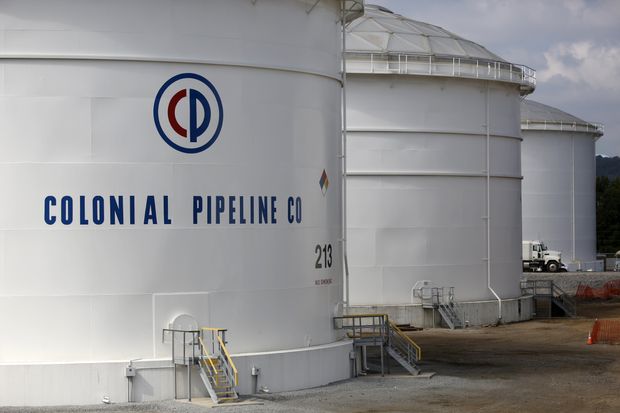One of the most urgent and primary systemic requirements for maintaining any digital system dependant industry in today’s day and age happen to be maintaining a proper cybersecurity netting. Recent developments in United States have serve as a reminder and warning for other system critical infrastructures and the importance of investing in cyber security as a matter of prime importance.
The Incident
One of America’s largest pipeline transporting refined fuel from Texas to East Coast fulfilling demands in major cities such as Washington DC and New York was the target of a vicious cyber-attack. Investigators are working to contain and identify the source of the crime and so far, fingers are being pointed at a group that goes by the name “DarkSide”. Notorious for attacking by deploying ransomware to extort victims, the attack aimed to lock down the company’s system and encrypt its data, demanding payment typically via bitcoins to regain access to their data and system.
Colonial Pipelines in a vague statement released late Friday announced the closure of its 5,500 miles of pipeline which has dubbed not only as the major pipelines in the East Coast but “The” pipeline for East Coast. Later on, Saturday the F.B.I., Energy Department, White House, and Colonial Pipeline acknowledge the possibility that through this breach hackers might have gotten access to system critical information which would allow them to attack susceptible parts of the pipeline.
It is also widely being believed that the attack is the not the work of a nation state but that of individual criminal organisations. However, with these groups being loosely and sometimes directly affiliated with foreign intelligence groups does present ample reasons to be paranoid.
The Aftermath

To estimate the impact an attack of such magnitude may have had on the corporation it is prudent of us to take stock of the company’s activities. Colonial primarily transports 2.5 million barrels per day of petroleum products and other fuels across America’s East Coast linking refineries on Gulf Coast to the heartlands of Southern and Eastern United States including critically important areas such as New York City and Washington D.C.
Colonial pipeline is taking steps to understand and resolve this issue. at this time, our primary focus is the safe and efficient restoration of our services and our efforts to return to normal operations.
With that notice, the company shut down its operations in a move which is being referred to as getting the jugular of infrastructure in the US. The company however did confirm that it has hired the cybersecurity firm FireEye to respond to the attack as is FBI and other agencies.
As expected, this supply shock has had far reaching consequences in a matter of hours. Petroleum futures on New York Mercantile Exchange gained 0.6% and 1.1% for gasoline and petroleum respectively. The American Association on the same breath has noted that a prolonged and sustained outage of the oil lines would inevitably result in price hike across the board for petroleum products.
Andrew Lipow, president of Consultancy Lipow Oil Associates voiced his concern saying that a shutdown lasting four or five days would lead to sporadic outages at fuel terminal along the East Coast. Further adding-
As every day goes by, it becomes a greater and greater impact on gulf coast oil refining. refiners would have to react by reducing crude processing because they’ve lost part of distribution system.
It is also being reported that the company has lost some 100 GB of data to hackers and what may come of such a breach remains to be seen.
Bottom Line
It is important that we acknowledge the growing threat of cyber-attack on resource critical infrastructures such as our natural resource distribution facilities, education infrastructure, core military assets, to name a few. However, so far there’s been little investment into research and develop effective and scalable anti-hacking features into such infrastructures. Maybe the recent developments through this attack or the previous solar wind attacks may incentivize government spending in this arena.

